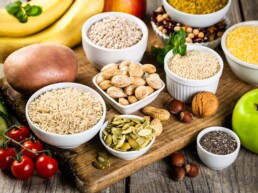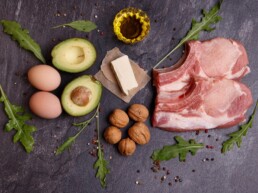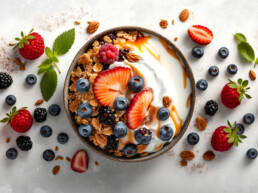Nut butters are finding a fervent following amongst health food enthusiasts today. Once reserved as a child-friendly sandwich filler, peanut butter now has a lot of competition! Today supermarket shelves are stocked with exotic butters made from almonds, cashews, walnuts and even seeds like pumpkin and sesame. Sweetened, unsweetened, flavoured, no-oil added, and so on make these nut butters quite versatile. But with the many food fads doing the rounds, many of my clients want to know, “Are nut butters healthy for you?”
According to the American Heart Association,
“People who regularly eat nuts or nut butters have a lower risk of heart disease or Type 2 diabetes than those who do not include them in their diet.”
Nuts, and by extension, nut butters, provide a host of health benefits. Packed with quality protein and healthy fats, nut butters also provide fibre, vitamins, minerals and antioxidants. But do look out for added sugar and unhealthy fats, both of which would negate the goodness that nut butters provide.
How nutritious can nut butters be?
Nut butters are generally rich in healthy fats, protein, fiber, vitamins, and minerals. For example, one tablespoon of peanut butter contains about 4 grams of protein, 3 grams of healthy fats, and 1 gram of fiber. Almond butter is similar in nutrition, with 1 tablespoon providing 3 grams of protein, 9 grams of healthy fats, and 1 gram of fiber. Additionally, nut butters are a good source of micronutrients like magnesium, potassium, and vitamin E, all of which are important for overall health.
Another benefit of nut butters is that they can help you feel full and satisfied. Because they are high in healthy fats and protein, they can help stabilize blood sugar levels and reduce cravings for sugary snacks. Additionally, nut butters are versatile and can be used in a variety of recipes, from smoothies to oatmeal to salad dressings.
For a breakup of the nutrient content of nut butters, let’s have a look at almond butter which contains a good amount of heart-healthy monounsaturated fat.
A two tablespoon serving of unsweetened almond butter provides
- 200 calories
- 6-7 g of protein
- 18 g of fat
Loaded with Vitamin E, riboflavin, calcium, zinc, copper and magnesium, almond butter can be a good addition to your meals.
Creative ways to use nut butters
Nut butters can certainly be used as a sandwich spread, but they also work well when added to yogurt or used as a dipping sauce. They can be added to oatmeal porridge, granola bowls or smoothies too, to increase the nutrition and satiety index.
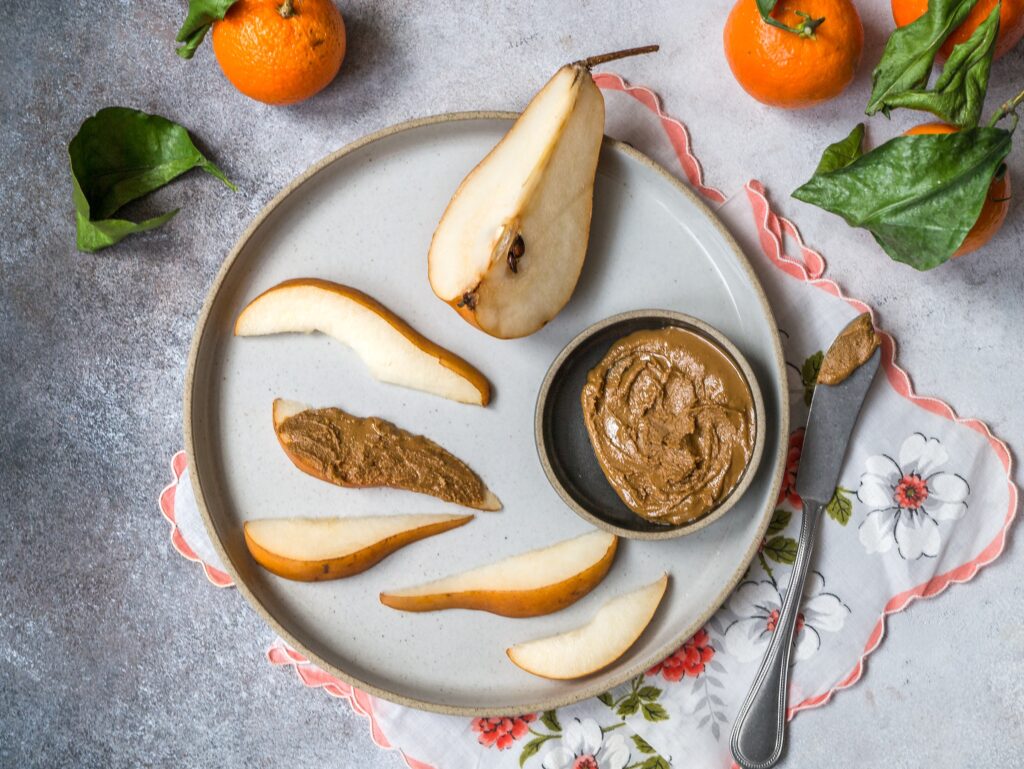
A few slices of an apple or pear dunked in almond butter can make a delicious and satiating evening snack. And if you’re feeling adventurous, nut butters form a wonderful base for creamy salad dressings and stir-fry sauces.
Which nut butter should you choose?
With the variety of nut butters available today, it can seem difficult to decide which one you ought to go for. Rather than focussing on the choice of nut, I think it’s more important to ensure that they do not contain unhealthy add-ons. In particular, do look out for added sugar and fats, particularly partially or hydrogenated fats and oils. Honestly speaking, I’d say, “Eat the nut butter that you like as long as it’s made with clean ingredients.”
Nutritional Benefits
Nut butters are generally rich in healthy fats, protein, fiber, vitamins, and minerals. For example, one tablespoon of peanut butter contains about 4 grams of protein, 3 grams of healthy fats, and 1 gram of fiber. Almond butter is similar in nutrition, with 1 tablespoon providing 3 grams of protein, 9 grams of healthy fats, and 1 gram of fiber. Additionally, nut butters are a good source of micronutrients like magnesium, potassium, and vitamin E, all of which are important for overall health.
Another benefit of nut butters is that they can help you feel full and satisfied. Because they are high in healthy fats and protein, they can help stabilize blood sugar levels and reduce cravings for sugary snacks. Additionally, nut butters are versatile and can be used in a variety of recipes, from smoothies to oatmeal to salad dressings.
Potential Drawbacks
Despite their nutritional benefits, there are some potential drawbacks to consuming nut butters. One concern is that they are high in calories, so if you’re not careful with portion sizes, you could end up consuming more calories than you need. Additionally, some nut butters contain added sugars and oils, which can contribute to weight gain and other health problems. To avoid this, it’s important to read the ingredient labels and choose nut butters that are made with only nuts and maybe a bit of salt, and no added sugars, oils, or other additives.
Another concern is that some people may have allergies to certain types of nuts. For example, peanut allergies are relatively common, and some people may also have allergies to tree nuts like almonds, cashews, and hazelnuts.
Overall, nut butters can be a healthy and nutritious addition to your diet. Do remember that it’s important to choose varieties that are made with only nuts and maybe a bit of salt, and no added sugars, oils, or other additives. Nut butters can provide healthy fats, protein, fiber, and micronutrients, as well as help you feel full and satisfied. However, it’s important to be mindful of portion sizes, as nut butters are high in calories. Additionally, if you have a nut allergy, it’s important to avoid nut butters and to seek medical advice if you accidentally consume it.
Can you make nut butters at home?
Yes! If you would like to go the extra mile and make nut butters at home, here’s a really easy recipe. All you need is two basic ingredients and a high-speed blender. I’ve made almond butter at home a few times and I’ve always been happy with the results. Do give it a try and let me know what you think.
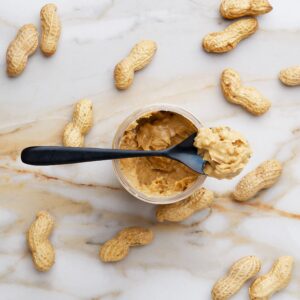
Almond Butter
Ingredients
- 3 cups raw almonds
- ¼ tsp salt
- ¼ tsp ground cinnamon
- 1-2 tbsp honey or maple syrup
Instructions
- Preheat the oven to 175 degrees Celsius. Spread the almonds across a rimmed baking sheet and warm the almonds in the preheated oven for 10 minutes. Set aside to cool slightly.
- Transfer the just-warm almonds to the bowl of a high-speed blender or food processor. Initially pulse and then process until the almonds go from whole to large chunks to crumbly to finely ground. Keep scraping down the almonds, and continue to process until the mixture is smooth and creamy.
- Blend in the salt and optional add-ins.
- Cool the almond butter and then transfer to a glass jar with a tight fitting lid. Store in the refrigerator for up to 2 weeks.
Nutrition
If you try this recipe, share a photo with #nutritionrefinery • I’d love to see your creations on Instagram and Facebook.
SHARE

Madhavi Shilpi
Nutritionist
Prediabetes Coach
Related
Proteins: Building Blocks for a Stronger You
Are you curious about the role proteins play in our diet? Do you wonder…
Carbohydrates: Fuel For Your Body
Do you often wonder about the role carbohydrates play in our diet? Did…
Fats: A Balanced Perspective
Fats are good for us. Fats are bad for us. The argument rages on. Is there a…
Probiotic-rich foods: 10 health benefits
Probiotics are live microorganisms that are beneficial for our health when…
Which diet should you follow?
There are so many diets out there! How do you figure out which diet you…
Nutrient focus: Vitamin D
Vitamin D: The Sunshine Vitamin and its Importance to Your Health Vitamin D is…
What is Prediabetes?
Have you been diagnosed with Prediabetes? Are you wondering what it actually…


